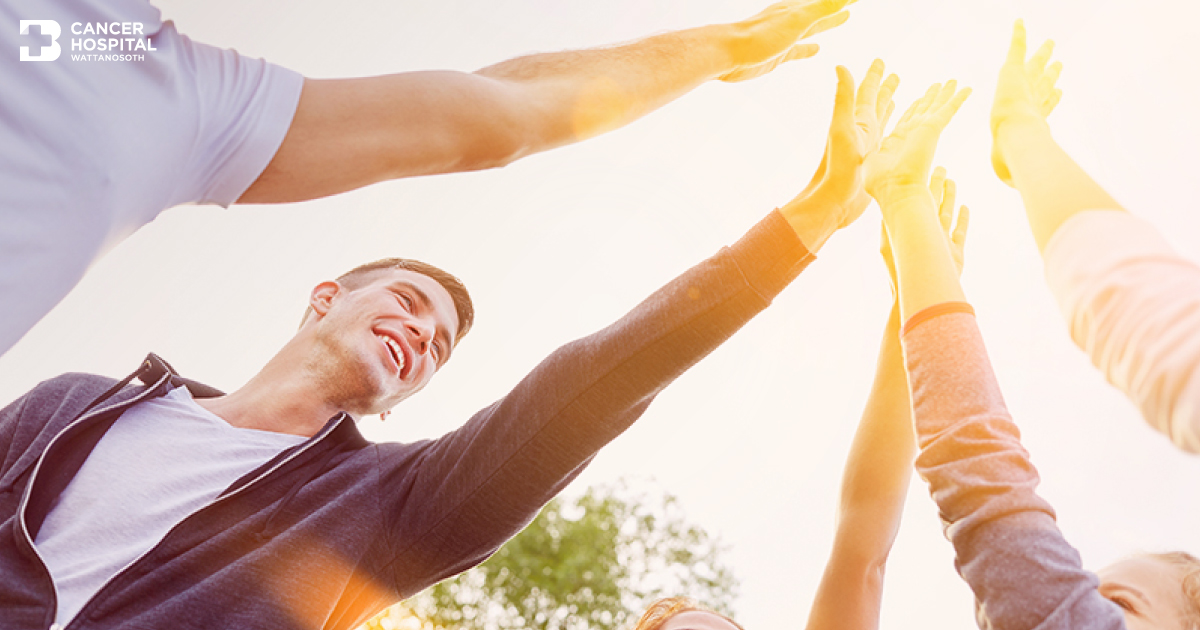
I Am and I will - WORLD CANCER DAY 2021
Make healthy lifestyle choices to reduce the risks of cancers
Nowadays, more and more people around the world are exposed to cancer risk factors such as like smoking, poor diet, and sedentary lifestyle. Even with earlier diagnosis and more effective treatments, the numbers of cancer cases are increasing. World Cancer Day is on the 4th of February. Equipping individuals and communities with the latest knowledge of the link between lifestyle and cancer can empower people to adopt healthy lifestyle choices. Individuals and communities need to be informed that more than a third of cancers are preventable by adopting healthy behaviors. Also, diagnosing cancer at an early stage and seeking timely care can save lives.

Women and breast cancer
Breast cancer is the type of cancer that forms in the cells of the breasts. Risk factors can be taking oral contraceptive pills and hormone replacement therapy, having the first period at a younger age, increasing age (>35 years), having never been pregnant, having the first child at an older age, radiation exposure, beginning menopause at an older age, a family history of breast cancer, obesity, and smoking. All women should have breast cancer screening as advised below.
- Self-breast examination at least once a month – the best time is 1 week after the period
- Breast examination by a doctor once a year
- Mammography and breast ultrasound once a year once you reach the age of 40.

Men and prostate cancer
All men are at risk of developing prostate cancer. Risk factors include older age and a family history of prostate cancer. Things that you can do to reduce the risk of prostate cancer are:
- Eat plenty of fruits and vegetables – tomatoes (lycopene), broccoli (sulforaphane), soybean (flavonoid and isoflavone)
- Prostate cancer screening – Prostate Specific Antigen (PSA) test

Quit smoking – reducing the risk of lung cancer
Smoking causes more than 80% of lung cancer. People who smoke 1 pack of cigarette a day for 30 years, 2 packs a day for 15 years, or already stop smoking but less than 15 years need to be screened for lung cancer by low dose CT-scan or CT-scan chest. It is also recommended that they should reduce or stop smoking and exercise regularly.

Stop Alcohol Consumption – reducing the risk of liver cancer
Liver cancer, also known as hepatic cancer, is a serious cancer that starts in the liver. It rarely produces symptoms until it is particularly advanced. The common causes of liver cancer are hepatitis B and C infection, heavy drinking, liver fluke infection, and carcinogen exposure. Lifestyle changes that can reduce the risk of liver cancer include:
- Stop drinking or drink less than 2 glasses/day and less than 14 glasses/week
- Be sure to cook all foods to their proper temperature and avoid raw meat
- Hepatitis A and B immunization
- Screening for liver cancer – liver ultrasound, blood test for alpha-fetoprotein (AFP)

Choosing good food – reducing the risk of colon cancer
Colon cancer is common in Thailand as Thai people eat a lot of processed meat. It is possible to reduce the risk of colon cancer by:
- Avoiding eating processed meat and food such as sausages, ham, fermented food (should consume less than 500g/week)
- People who are older than 50 years should be screened for colon cancer by colonoscopy every 5 – 10 years
Everyone can take steps to reduce their risk of cancer by quitting smoking, staying physically active and choosing healthy food and drinks. Diagnosing cancer isn’t always easy – not all cancers show early signs and symptoms and other warning signs appear quite late when the cancer is advanced. In addition, screening for cancer is also important as finding cancer early and receiving timely treatments almost always makes it easier to treat or even cure such cases.